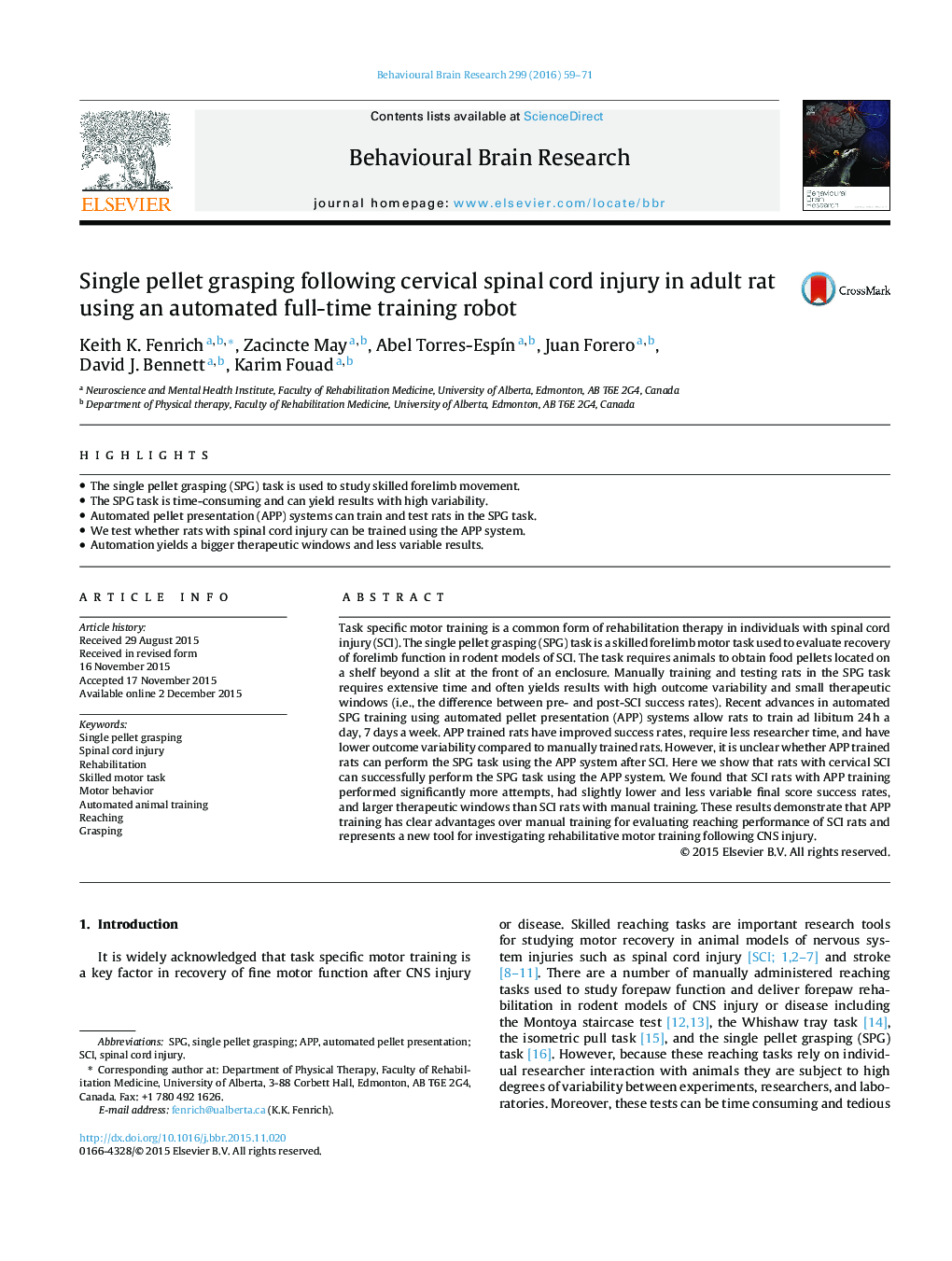| Article ID | Journal | Published Year | Pages | File Type |
|---|---|---|---|---|
| 6256226 | Behavioural Brain Research | 2016 | 13 Pages |
â¢The single pellet grasping (SPG) task is used to study skilled forelimb movement.â¢The SPG task is time-consuming and can yield results with high variability.â¢Automated pellet presentation (APP) systems can train and test rats in the SPG task.â¢We test whether rats with spinal cord injury can be trained using the APP system.â¢Automation yields a bigger therapeutic windows and less variable results.
Task specific motor training is a common form of rehabilitation therapy in individuals with spinal cord injury (SCI). The single pellet grasping (SPG) task is a skilled forelimb motor task used to evaluate recovery of forelimb function in rodent models of SCI. The task requires animals to obtain food pellets located on a shelf beyond a slit at the front of an enclosure. Manually training and testing rats in the SPG task requires extensive time and often yields results with high outcome variability and small therapeutic windows (i.e., the difference between pre- and post-SCI success rates). Recent advances in automated SPG training using automated pellet presentation (APP) systems allow rats to train ad libitum 24Â h a day, 7 days a week. APP trained rats have improved success rates, require less researcher time, and have lower outcome variability compared to manually trained rats. However, it is unclear whether APP trained rats can perform the SPG task using the APP system after SCI. Here we show that rats with cervical SCI can successfully perform the SPG task using the APP system. We found that SCI rats with APP training performed significantly more attempts, had slightly lower and less variable final score success rates, and larger therapeutic windows than SCI rats with manual training. These results demonstrate that APP training has clear advantages over manual training for evaluating reaching performance of SCI rats and represents a new tool for investigating rehabilitative motor training following CNS injury.
